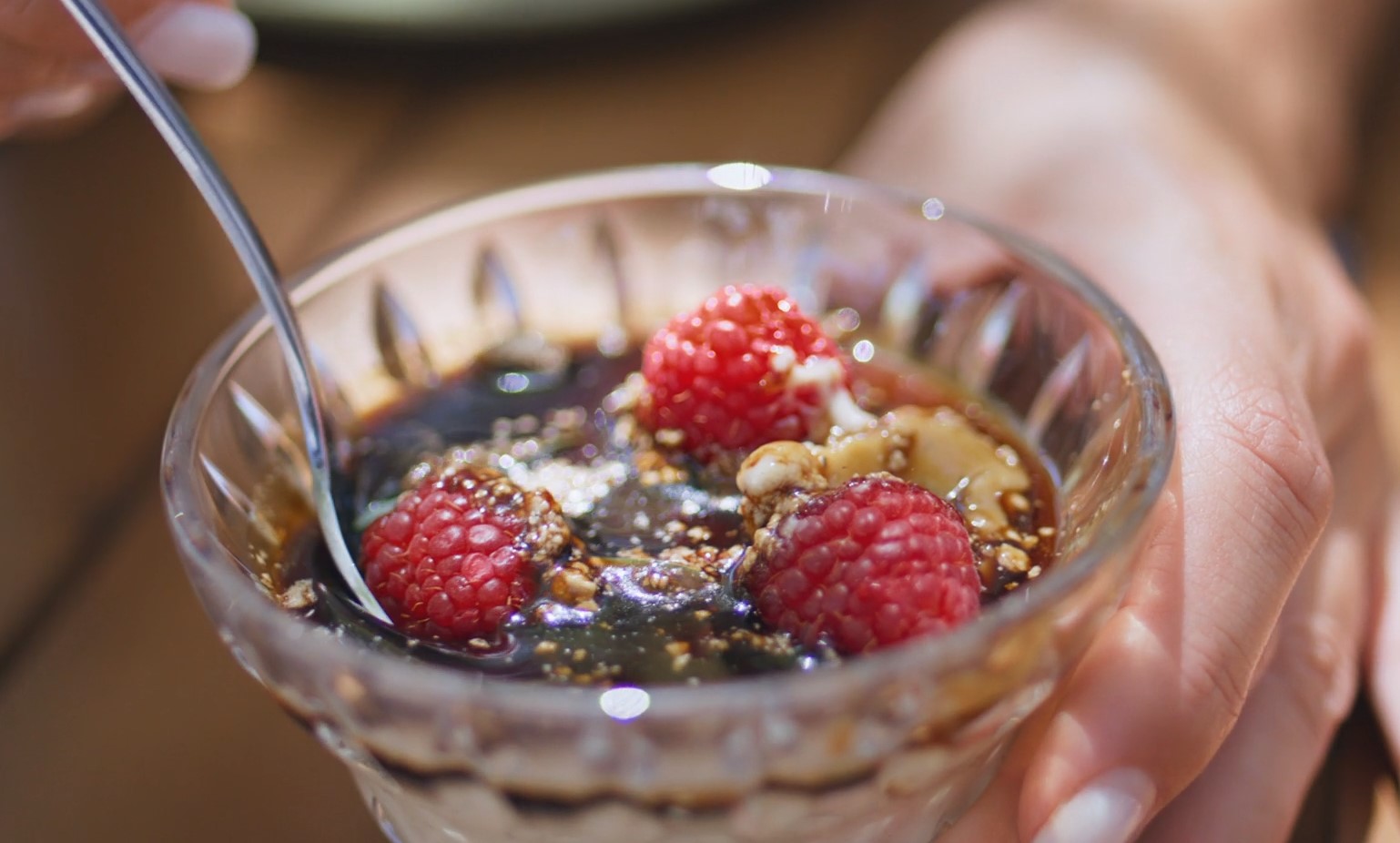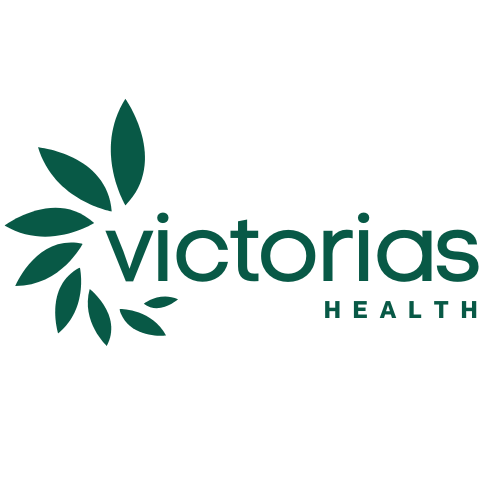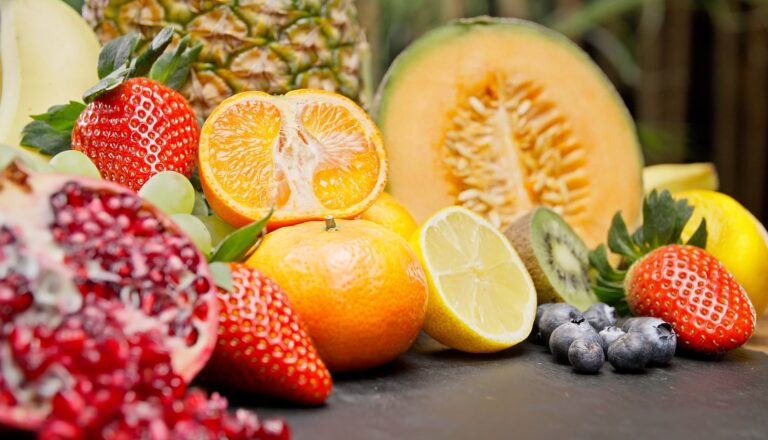Let’s talk vitamins, shall we? Getting enough of these little nutritional powerhouses can feel like a full-time job, but it doesn’t have to be.
Here’s a guide on how to easily incorporate them into your daily routine without needing a degree in nutrition. To get it right out of the way: it’s simpler than you think.
1. Eat a Variety of Fruits and Vegetables

Eating the rainbow isn’t just a catchy phrase. Different colors in fruits and vegetables usually mean a variety of nutrients. So, don’t just stick to your trusty apples and bananas.
Throw in some blueberries, bell peppers, and sweet potatoes. Your plate should look like a piece of abstract art—colorful and diverse.
Fruits
- Oranges: Rich in Vitamin C, helps boost the immune system.
- Kiwis: High in Vitamin C and Vitamin K, great for immune support and blood health.
- Berries (strawberries, blueberries, raspberries): Packed with Vitamin C, antioxidants, and fiber.
- Papayas: High in Vitamin C and A, supports vision and immune health.
- Mangoes: Rich in Vitamin A and C, great for skin and immune function.
- Avocados: Contains Vitamin E, K, and B-vitamins, supports skin health and energy levels.
- Bananas: Good source of Vitamin B6, aids in metabolism and brain health.
Vegetables
- Spinach: High in Vitamins A, C, and K, supports bone and immune health.
- Kale: Rich in Vitamins A, C, and K, packed with antioxidants.
- Carrots: High in Vitamin A (beta-carotene), good for vision and immune function.
- Bell Peppers (especially red): Excellent source of Vitamin C and A.
- Broccoli: Contains Vitamins C, K, and A, supports immune and bone health.
- Sweet Potatoes: Rich in Vitamins A and C, great for vision and skin health.
- Brussels Sprouts: High in Vitamins C and K, supports immune and bone health.
2. Choose Nutrient-Dense Foods

Let’s be honest: not all foods are created equal. Some are loaded with nutrients, while others are just empty calories.
Kale, berries, and salmon, for example, pack a punch without the calorie guilt. It’s all about quality over quantity, and you should always be aware of it.
- Salmon: Rich in omega-3 fatty acids, vitamin D, and B vitamins.
- Sardines: Packed with omega-3s, vitamin D, and calcium.
- Kale: High in vitamins A, K, C, and several B vitamins.
- Seaweed: Contains iodine, vitamins A, C, E, and K, as well as folate and zinc.
- Garlic: Offers vitamins C and B6, manganese, and selenium.
- Shellfish: Loaded with B vitamins, selenium, and zinc.
- Potatoes: Provide vitamin C, B6, potassium, and magnesium.
- Liver: Extremely high in vitamin A, B vitamins, iron, and copper.
- Avocados: Rich in vitamins E, K, C, and several B vitamins.
- Beans and Lentils: Good sources of B vitamins, iron, magnesium, and potassium.
- Berries: High in vitamin C, fiber, and various antioxidants.
- Eggs: Contain vitamins B12, D, A, and selenium.
- Nuts and Seeds: Packed with vitamin E, magnesium, and healthy fats.
- Leafy Greens: Rich in vitamins A, C, K, and several B vitamins.
- Whole Grains: Provide B vitamins, iron, magnesium, and fiber.
- Dairy Products: Good sources of calcium, vitamin D, and B12.
3. Protein is Essential

Protein isn’t just for bodybuilders. High-quality protein sources like eggs, lentils, and chicken are crucial for your bones and brain.
Think of it as the building block for pretty much everything in your body. Plus, it keeps you full and satisfied, making those mid-afternoon snack attacks less likely.
- Eggs: High in protein and contain essential vitamins such as B12, B2, A, and D.
- Chicken Breast: A lean source of protein rich in B vitamins.
- Greek Yogurt: Packed with protein and high in calcium, B vitamins, and probiotics.
- Milk: Provides protein along with vitamins D, B2, and B12.
- Salmon: Rich in protein and provides vitamins D, B12, and omega-3 fatty acids.
- Lean Beef: A great source of protein and essential vitamins like B12 and B6.
- Cottage Cheese: High in protein and provides calcium and vitamin B12.
- Lentils: Plant-based protein that is also rich in folate, iron, and fiber.
- Almonds: Provide protein along with vitamin E, magnesium, and healthy fats.
- Peanut Butter: Offers protein and contains vitamin E, B3, and healthy fats.
- Tofu: A good source of plant-based protein and contains iron, calcium, and magnesium.
- Fish and Seafood: Excellent sources of protein and provide various vitamins such as D and B12.
- Nuts and Seeds: Rich in protein and provide vitamins E and B6, along with healthy fats.
- Soy Products: High in protein and provide vitamins B6, B2, and iron.
- Pork: A good source of protein and contains vitamins B6 and B12.
4. Increase Fiber Intake

Fiber might not be the most glamorous nutrient, but it’s super-important for digestion. Aim for about 28 grams daily to keep everything moving smoothly.
Think whole grains, legumes, and veggies. And no, those sugary fiber bars don’t count.
- Oats: High in fiber and packed with vitamins, minerals, and antioxidants.
- Raspberries: Rich in fiber and vitamins C and K.
- Pears: A good source of fiber and vitamins C and K.
- Green Peas: High in fiber, vitamins A, C, K, and B-vitamins.
- Broccoli: Contains fiber and vitamins C, K, and folate.
- Chia Seeds: High in fiber, omega-3 fatty acids, and several vitamins.
- Blackberries: Rich in fiber, vitamins C and K.
- Kidney Beans: High in fiber, iron, and several B-vitamins.
- Lentils: Packed with fiber, protein, iron, and folate.
- Apples (with skin): Good source of fiber and vitamins C and A.
- Sweet Potatoes: High in fiber, vitamins A, C, and several B-vitamins.
- Blueberries: Rich in fiber, vitamins C and K.
- Black Beans: Contains fiber, protein, iron, and folate.
- Nuts (e.g., almonds, walnuts): High in fiber, healthy fats, and several vitamins.
- Popcorn: Whole grain high in fiber.
- Fresh Fruits and Raw Vegetables: These are generally high in both fiber and vitamins.
5. Stay Hydrated

Water is life. Literally. It helps regulate body temperature, keeps joints lubricated, and can even improve your mood.
Aim for beverages that add some nutritional value, like herbal teas or water with a splash of lemon. Soda and sugary drinks? Not so much. In fact, I recommend you avoid these altogether.
6. Include Healthy Fats

Fat isn’t the enemy, despite what those 90s diet fads told us. Healthy fats found in avocados, nuts, and fatty fish are essential for energy and vitamin absorption. They make your skin glow and keep your brain sharp. So go ahead, have that avocado toast.
- Avocados: Rich in monounsaturated fats and vitamins such as E, K, and B-complex.
- Fatty Fish: Salmon, mackerel, herring, lake trout, sardines, and albacore tuna are excellent sources of omega-3 fatty acids and vitamin D.
- Nuts: Almonds, walnuts, and cashews are high in healthy fats and vitamin E.
- Seeds: Chia seeds, flaxseeds, and hemp seeds provide omega-3 fatty acids, fiber, and various vitamins.
- Olive Oil: Extra virgin olive oil is a good source of monounsaturated fats and vitamin E.
- Eggs: Whole eggs, particularly the yolks, contain healthy fats and vitamins A, D, E, and K.
- Dark Chocolate: Contains healthy fats and is rich in antioxidants and magnesium.
- Cheese: Provides a good amount of healthy fats and vitamins like A and B12.
- Tofu: A plant-based source of healthy fats and contains vitamins B1, B2, and B6.
- Peanut Butter: Contains healthy fats and vitamin E.
- Beans: High in fiber and provide essential fatty acids along with vitamins and minerals.
7. Limit Processed and Sugary Foods

We all love a good donut now and then, but processed and sugary foods should be the exception, not the rule. They’re low in nutrients and can mess with your health in the long run.
Opt for healthier alternatives like fruit or dark chocolate when you’re craving something sweet.
8. Consider Dietary Supplements
Sometimes, diet alone doesn’t cut it. If you’re on a restrictive diet or have certain health conditions, supplements might be necessary, and in my opinion, organic ones are always better.
But don’t go overboard—too much of a good thing can be bad. Talk to a healthcare professional about what’s right for you.
Essential Nutrients
A balanced diet is your best bet for a strong immune system. Aim for a mix of vitamins and minerals from natural food sources. Here’s a quick cheat sheet:
- Vitamin A: Beef liver, eggs, shrimp, fortified milk, sweet potatoes, carrots, spinach.
- Vitamin B6 and B12: Meat, fish, poultry, legumes, tofu, soy products, milk, cheese.
- Vitamin C: Citrus fruits, broccoli, bell peppers, strawberries, tomatoes.
- Vitamin E: Vegetable oils, leafy greens, nuts.
- Vitamin K: Spinach, broccoli, kale.
Vitamin D

The sunshine vitamin is crucial for absorbing calcium and keeping your bones healthy. Sunlight is the best source, but if you’re stuck indoors or live in a gloomy place, supplements can help.
Aim for 5,000 to 7,000 IU of Vitamin D3 daily if you can’t get enough sun.
Dietary Sources
Focus on getting your vitamins from food rather than pills. It’s more effective and enjoyable. Here are some prime sources:
- Vitamin A: Sweet potatoes, carrots, and spinach are your best friends here.
- Vitamin B6 and B12: Think fish, poultry, and fortified cereals.
- Vitamin C: Load up on oranges, bell peppers, and strawberries.
- Vitamin E: Nuts and vegetable oils are key players.
- Vitamin K: Leafy greens like spinach and kale should be regulars on your plate.
Over-Supplementation
More isn’t always better. Excessive vitamin intake can be as harmful as not getting enough. Stick to the recommended doses and avoid the temptation to mega-dose.
Final Thoughts
Incorporating these tips into your daily routine can make a huge difference in how you feel. And it doesn’t have to be complicated or overwhelming.
Just a few simple changes, and you’ll be well on your way to getting all the vitamins your body needs.

